
| news.avstv.com A Talk with ‘Barah Aana’ Director Raja Menon November 13, 2009 by E. Nina Rothe |
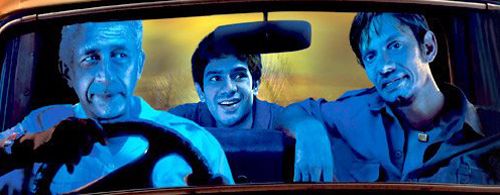 Every once in a long long while, a film comes along that simply defies all rules and successfully makes us look at things from a different prospective. Raja Menon’s gritty and powerful ‘Barah Aana’ — which will have an official NYC Premiere on Saturday, November 14th as part of the MIAAC film festival — is just such a film. With its insightful look at the working class underdogs of modern India, those who seem to have fallen through the cracks while the country participates in a momentous global race to finally shake its poor world image, the film disrupts our preconceived ideas on those we often come in contact with but seldom truly see. While it does present a rough side of Bombay, with desperate actions justified by unlivable conditions, it also cleverly avoids the typical pitfalls of some of the recent films that attempt to show the ‘real India’ but give a one-dimensional portrayal of the Maximum City. The resulting film is a great character study with a wonderful, thinking-filmgoer’s story. I recently caught up with the at-once noble and bohemian Raja Menon for a candid talk about the film, his creative process and insight on the people he likes to surround himself with on his productions.
RAJA MENON: Well, I was born in Kerala, grew up in Bangalore, and moved to Mumbai to chase the film dream. Films were not on my horizon when I was in college and finished a BSc in Chemistry, but soon after college I was offered a job as a production runner with an advertising filmmaker and fortunately for me I hated the marketing job I had been doing for a month and grabbed it. The first day of my first shoot was a revelation. I have never understood anything as clearly as I did that day. I knew that film making is what I would attempt to do for the rest of my life. I moved to Mumbai to chase this dream. In time I learned some editing skills and worked both as an assistant director and editor on ad films. A few years later I started my own production company primarily making commercials. In 2002 I made my first feature, an ultra low budget indie called Bas Yun Hi. Disappointed by the way I handled the project, it took 6 years of introspection before I felt I was ready to make my next feature. In the meanwhile I practised my art making commercials and have directed over 200 of them to date. I continue to make commercials and hope to make more feature films as I travel along this fantastic road.
RM: I was disappointed by what I saw around me. India was booming and the middle class was getting wealthier and more materialistic every day, while the working class that was making life so wonderful for them was not seeing more than a trickle of this wealth. They were of course surrounded by it since it was in this environment that they worked. I started thinking about how the working class dealt with this situation as calmly as they did. I wondered why we were not seeing a crime wave that seemed the most natural reaction to all of this. As I researched the subject I realised as human beings we tent to compare only with our own immediate circle at least in terms of financials. What really irked the working class was not the huge financial inequality but the lack of dignity that was being meted out to the poor that had become rampant and synonymous with becoming wealthier. Once I reached this conclusion, the plot and structure of the film came naturally from the environment in which I lived. ENR: And how was it working with Raj Kumar Gupta on your screenplay and what brought you two together for this project? RM: Raj is a fantastic writer and has an innate empathy for the characters my film is about. He also spoke their tongue and understood their way of expressing themselves, and so he brought all that into it and gave life to my story. The film would not have been anything like it is without that understanding. Like every other person involved with Barah Aana , this film would not have been the same without him. I think we worked very well as a team. His strengths as a writer and my very strong ideas of the grass root politics of the situation helped find that middle ground that I was hoping to find where the film is dealing with a very serious issue but is at the same time is hopefully an entertaining dark comedy that isn’t trying to preach a point of view .
RM: Ah, thats a special one. Giulia was the first producer who showed interest in the film. She gave me the legs to actually keep pushing forward with the project every time I was down and feeling the film may not get made. She was in India searching for scripts and we happened to meet. I shot off a 4 liner and she bit. She then followed it up and at some point we had actually managed to get the Italian Cultural Ministry funding approved but unfortunately we could not use it since we could not fulfill all their mandatory requirements. As for Viola, my character Kate was from Europe, and since I was in Rome, I decided to screen test a few actors for the part. I was really surprised by the interest that screen test generated. I had no idea that Viola was as big a star as she is, but she did an audition just like the others and I noticed that she had that bohemian quality that I was looking for in Kate and so decided to cast her. She had never been to India but was so exited about the prospect that I knew she would be wonderful in the film. Of course it helped that her mom had played Apollonia in The Godfather , and like every filmmaker I too was looking for my vicarious connection to one of my favourite films (laughs). ENR: You worked with an almost exclusively female crew on the film. Can you share a bit of the behind-the-scenes goings on? RM: I hope every filmmaker out there reading this piece is going green with envy right now!! Honestly, it was not something I planned. I have worked with this same team for years and we share a very special rapport, just so happens that quite of few of them are women.
RM: Thank you. Casting to me is one of the most important aspects of film making, and I don’t mean just casting the leads. I think every part however small if well etched out will give the actor the chance to bring something to the role. In order to be able to do that you need to cast good quality actors who of course also fit the look. Nandini Shrikent my casting director, worked herself to the bone for months before we had our cast in place. It was funny because we’d keep testing and suddenly you see 1 min of some audition and it hit you like a thunderbolt.
Vijay Raaz was the actor I had penned in for the character of Yadav when I had started writing the story. We found it really hard to meet up due to a series of situations but when we finally did, as I saw him walk towards my table, I turned to Giulia and said sign him whatever it takes. Vijay is one of the most wonderful human being and supremely talented actors I know. Sometimes I would find it hard to cut a shot as I watched him enact it, until he would spout something stupid or irreverent to break my reverie. Arjun was a difficult choice as I had to either choose a guy less urban and then urbanize him or get an actor who is more urban and teach him the ways of the working class. I think he worked very hard and did a splendid job. Tannishtha and I go back a long way. We’re very close friends and I have been watching her fantastic career almost from its inception. At one point in time she wanted to understand direction and so hung around my office for a couple of month. This was when I came up with the first germ of the idea for Barah Aana. She was practically the first person to hear it and she was adamant that I write her a part in the film when it would get written. After that she became a big star and I called in her promise to be part of the film. How much she brings to Rani. ENR: What is in your future, as projects? RM: More films hopefully. I have written a political satire that I hope to find funding for. ENR: Although your film was highly anticipated both in India and in the US, it was never released here. How does it feel to finally show it to the MIAAC audiences and how do you think their take on it will differ from the Indian audiences? RM: It feels really fantastic to finally be in the US. It has been a long hard road and I feel really great that audiences in the US will finally get to see ’Barah Aana’. Honestly I have no idea how an American audience will react to the film but I’m hopeful that being quite a universal subject audiences anywhere should connect. MIAAC is such a great platform, in such a great city for independent film making. I do hope the audience excitement mirrors mine at being able to showcase my film there. **As an afterword, since my talk with Menon ‘Barah Aana’ has been playing to sold-out audiences here in the US, most recently at the Chicago International Film Festival, and has won several awards including Best Director for Menon at the NJISAC film festival. It is continuing its powerful journey with a sold-out screening at MIAAC attended by the director. So, if you still wish to see the film this Saturday, there are no advance tickets left but you could try last minute at the Quad Cinema… |
| Source: http://news.avstv.com/2009/11/13/a-talk-with-barah-aana-director-raja-menon/ |
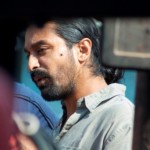 E. NINA ROTHE: Can you share just a little info about yourself? You are quite enigmatic to learn about…
E. NINA ROTHE: Can you share just a little info about yourself? You are quite enigmatic to learn about… 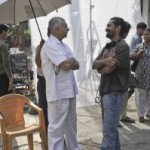 ENR: What was your inspiration for making this film? Can you talk a bit how the film came about?
ENR: What was your inspiration for making this film? Can you talk a bit how the film came about? ENR: What is the Italian connection in your film? Giulia Achilli is your co-producer and Italian actress Violante Placido plays a role in the film, how did you connect with them?
ENR: What is the Italian connection in your film? Giulia Achilli is your co-producer and Italian actress Violante Placido plays a role in the film, how did you connect with them?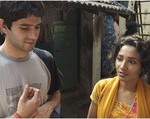 ENR: Your casting is superb, with an whos-who of fantastic talent. How did your actors become associated with your project? Any stories that you can share on that? And Tannishtha these days is everywhere, how did you come to cast her in your film?
ENR: Your casting is superb, with an whos-who of fantastic talent. How did your actors become associated with your project? Any stories that you can share on that? And Tannishtha these days is everywhere, how did you come to cast her in your film?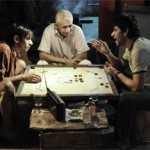 I wanted Naseer Bhai to play the role of Shukla simply because I think he is one of the greatest actors I’ve watched, and the role needed a really special performance. Having very few lines meant his body language had to tell the audience a story. Watching him act has been one of the most pleasurable experiences I have had. I met Naseer Bhai with great trepidation, as everyone had warned me that he could be a real tough customer but found him extremely genial. We discussed the story and he asked me for the script which I left him. He called me back in a few hours and just said ‘I want to be in this film, this is one of the best scripts I’ve read in a long time’. I thought he taking the piss out of me but even if he was, that was the biggest confidence booster I could ask for.
I wanted Naseer Bhai to play the role of Shukla simply because I think he is one of the greatest actors I’ve watched, and the role needed a really special performance. Having very few lines meant his body language had to tell the audience a story. Watching him act has been one of the most pleasurable experiences I have had. I met Naseer Bhai with great trepidation, as everyone had warned me that he could be a real tough customer but found him extremely genial. We discussed the story and he asked me for the script which I left him. He called me back in a few hours and just said ‘I want to be in this film, this is one of the best scripts I’ve read in a long time’. I thought he taking the piss out of me but even if he was, that was the biggest confidence booster I could ask for.